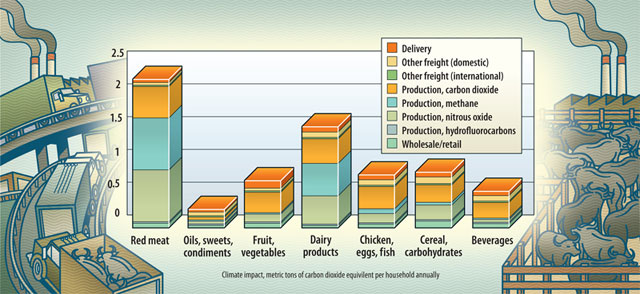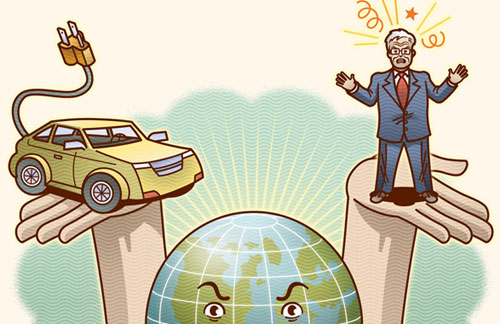sierraclub.org - sierra magazine - january/february 2009 - grapple


Grapple
Congress entrusts expanded coastal drilling to the Interior Department's party animals
 Was it the cocaine, the drunken parties, the ski getaways, or the sex? Whatever tipped the balance, last September Department of the Interior inspector general Earl E. Devaney blasted the Minerals Management Service (MMS) for its "culture of ethical failure." Devaney found that employees of the agency's Royalty in Kind program, which collects billions of dollars in oil revenues, were in the habit of partying and occasionally sleeping with oil company representatives with whom they were doing business. Program staff also allowed energy companies to rewrite bids after being awarded leases, depriving the government of millions of dollars in revenue.
Was it the cocaine, the drunken parties, the ski getaways, or the sex? Whatever tipped the balance, last September Department of the Interior inspector general Earl E. Devaney blasted the Minerals Management Service (MMS) for its "culture of ethical failure." Devaney found that employees of the agency's Royalty in Kind program, which collects billions of dollars in oil revenues, were in the habit of partying and occasionally sleeping with oil company representatives with whom they were doing business. Program staff also allowed energy companies to rewrite bids after being awarded leases, depriving the government of millions of dollars in revenue.
Two weeks after Devaney's report came out, Congress offered its own gift to the oil industry by allowing the 27-year-old offshore-drilling moratorium to expire. The agency responsible for awarding new drilling leases? The MMS.
The agency estimates that there are about 18 billion barrels of recoverable oil in areas previously off-limits under the moratorium. But that oil won't flow anytime soon. No leases can be sold until they are included in a new five-year plan, which would take the MMS at least two years to complete. Once bids have been accepted, it would take another five to ten years for drilling to begin. Meanwhile, Democrats hope to reinstate the moratorium in the next Congress, but it may be tough to get the genie back in the bottle. More likely, Congress will allow some drilling in exchange for energy policy sweeteners like funding for renewables or better automotive fuel economy.
States where the oil is, however, are those where drilling could be the toughest sell. Half of the nation's undiscovered offshore oil is thought to be off California, where drilling is wildly unpopular. A prior deal bans any drilling off Florida's western beaches until 2022. The Navy opposes drilling near its Norfolk, Virginia, base, which puts much of that state off-limits, and oil companies are unlikely to go where there's no infrastructure, like Oregon or Massachusetts.
That might give MMS staff extra time to peruse their new pocket-size, laminated ethics guides, which won an award from the Office of Government Ethics--two days before the sex, drugs, and royalties scandal hit the papers. —Dashka Slater
Nanny State
 As alpine habitats warm, creatures adapted to them have nowhere to go but up (even if it's just climbing on top of Mom). For mountain goats, which already inhabit the highest reaches of the Northern Rockies, that can translate to nowhere. In recent years these tough, resilient creatures have been losing ground in much of their traditional range, dwindling in many places to populations in the low double digits. Some biologists worry that the snowfields that irrigate their summer grazing areas are melting too quickly. Other possible culprits are the new, more powerful snowmobiles that can run high up mountain bowls, driving goats still higher and away from desperately needed browse.
As alpine habitats warm, creatures adapted to them have nowhere to go but up (even if it's just climbing on top of Mom). For mountain goats, which already inhabit the highest reaches of the Northern Rockies, that can translate to nowhere. In recent years these tough, resilient creatures have been losing ground in much of their traditional range, dwindling in many places to populations in the low double digits. Some biologists worry that the snowfields that irrigate their summer grazing areas are melting too quickly. Other possible culprits are the new, more powerful snowmobiles that can run high up mountain bowls, driving goats still higher and away from desperately needed browse.
Happily, while mountain goats are in trouble in their historic range, some populations continue to thrive, particularly in large, rich habitats where they've been transplanted, like Montana's Crazy Mountains or Yellowstone National Park.
The image above is part of a new exhibit called Irreplaceable: Wildlife in a Warming World, which will be traveling to eight U.S. cities this spring. To find a showing near you, visit irreplaceablewild.org.
—Paul Rauber
The Locavore's Dilemma

Recently many concerned eaters, worried about the number of "food miles" their meals have to travel between farm and fork, have sought to eat as locally as possible. While there are many fine reasons for doing so, the transportation of food turns out to account for only 11 percent of its greenhouse-gas emissions. According to Christopher Weber and H. Scott Matthews of Carnegie Mellon University, food production is a much greater factor--especially that of red meat, because of the high energy and fertilizer use required. Switching from beef to veggies one day a week, the researchers figure, would reduce your carbon footprint more than if you bought all of your food locally.
The graph above measures various foods by metric tons of carbon dioxide equivalent per household annually. Non-CO2 gases include methane, which cows burp, and nitrous oxide, released in the growing of cattle feed. —Paul Rauber
Bold Strokes
Law of Nature
 Ecuadoran citizens have overwhelmingly approved a new constitution that gives nature the right to "exist, persist, maintain, and regenerate." Theirs is the first nation to give legally enforceable rights to the natural world. (Spain recently granted rights to apes, while the United States, for its part, confers legal rights on corporations.) The new Ecuadoran constitution requires the state to apply precaution in all activities that might lead to ecosystem destruction, species extinction, or "permanent alteration of the natural cycles." Indigenous Ecuadorans see nature as a maternal figure, known as "Pachamama."
Ecuadoran citizens have overwhelmingly approved a new constitution that gives nature the right to "exist, persist, maintain, and regenerate." Theirs is the first nation to give legally enforceable rights to the natural world. (Spain recently granted rights to apes, while the United States, for its part, confers legal rights on corporations.) The new Ecuadoran constitution requires the state to apply precaution in all activities that might lead to ecosystem destruction, species extinction, or "permanent alteration of the natural cycles." Indigenous Ecuadorans see nature as a maternal figure, known as "Pachamama."
Breath of Fresh Air
During the 2008 summer Olympics, the Chinese government cracked down on Beijing's notorious haze, halting much of the city's construction and factory production and taking a third of its 3 million cars off the roads. The result was two months of unusually clear skies. Now, in an effort to keep Beijing breathable, the government is trying a six-month experiment that will keep each car off the road one day per week and idle a third of government cars. Predictably, those who walk and use public transit support the plan, while car owners oppose it. Some are circumventing the system--by buying a second car. —Dashka Slater
Quick thinking before we slowly fry
HEAD START ON CARBON TRADING U.S. businesses increasingly view a carbon-trading system to cap and gradually reduce the production of global-warming gases as inevitable. Many are already getting their feet wet by buying and selling carbon credits on the Chicago Climate Exchange, which boasts some 350 members, including 11 percent of the Fortune 100. As of this writing, the price of a metric ton of carbon dioxide is $1.17--but expected to rise significantly once legislation makes carbon reduction mandatory.
PAINT THE TOWN WHITE Scientists at the Lawrence Berkeley National Laboratory have discovered what people in the Mediterranean already know--white buildings absorb less heat. In fact, they could also help fight global warming. According to Berkeley lab physicist Hashem Akbari, replacing the dark colors on a 1,000-square-foot roof offsets ten metric tons of carbon dioxide emissions. If rooftops and pavement in the world's 100 largest cities were converted to light, reflective colors, it could offset more CO2 than all countries emit in a year, Akbari contends.
HOT PROPERTIES Solar panels are now popular enough to be purloined, the New York Times reports. California has some 33,000 arrays, and thieves are filching panels from roofs, roadsides, schools, organic farms, construction sites, and solar-installation businesses. The crooks then sell the goods online. In Germany, where such pilfering is common, manufacturers offer solar panels with built-in antitheft devices. Golden State solar owners are protecting their investments with hard-to-unfasten screws, video cameras, and .22-gauge shotguns. —D.S.

ON THE ONE HAND ...
General Motors has given reporters and car geeks a glimpse of the long-awaited Chevy Volt, which will debut in late 2010. The car's lithium ion batteries will provide enough juice for 40 miles of travel; after that, power will come from gasoline. GM hopes the success of the Volt will recharge the company's declining fortunes, after posting a $15.5 billion loss in the second quarter of 2008 and a further $2.5 billion in the third. The losses are due in part to consumers' waning interest in the SUVs that have been GM's specialty.
ON THE OTHER ...
GM vice chair Bob Lutz still doesn't believe that people are to blame for global warming, which he contends is caused by sunspots or some other cosmic juju. "I accept that the planet is heated, but I, like many noted scientists, don't believe in the CO2 theory," he explained last February on Comedy Central's The Colbert Report. Lutz, who called humanmade global warming a "total crock," claims that his opinion is shared by "32,000 of the world's leading scientists," a figure that seems to originate in the aforementioned crock. —D.S.
Illustrations, from top: Victor Juhasz, Peter and Maria Hoey (source: Environmental Science & Technology), Josef Gast, Peter and Maria Hoey; used with permission.
Photo by Wendy Shattil and Bob Rozinski/International League of Conservation Photographers; used with permission.